Problem-Solving Skills Normal Alphabet Worksheets for Ages 4-8
7 filtered results
-
From - To
Boost your child's problem-solving skills with our engaging normal alphabet worksheets, designed for ages 4-8. These interactive resources combine fun activities with essential learning, helping young learners develop critical thinking and reasoning abilities. Each worksheet is thoughtfully crafted to reinforce alphabet recognition while challenging kids to solve puzzles, answer questions, and complete tasks that stimulate their minds. Perfect for home or classroom use, our worksheets encourage creativity and independence in learning. Watch as your child gains confidence in their problem-solving skills while mastering the alphabet with ease. Explore our collection today to inspire a love for learning!
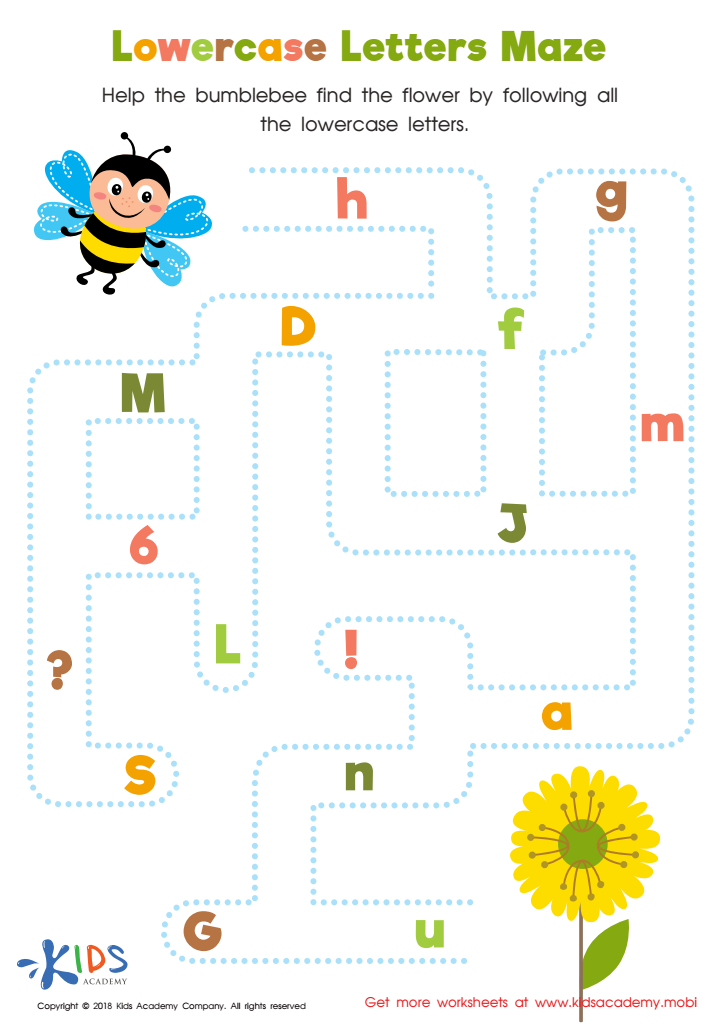

Lowercase Letters Maze Worksheet
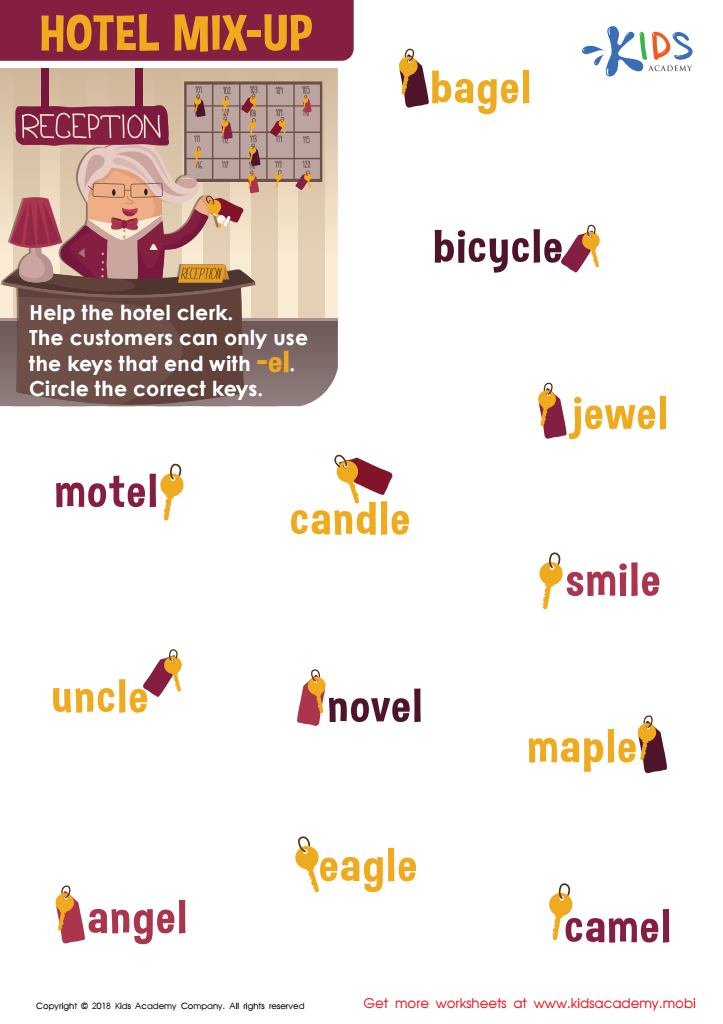

Hotel Mix-up Worksheet
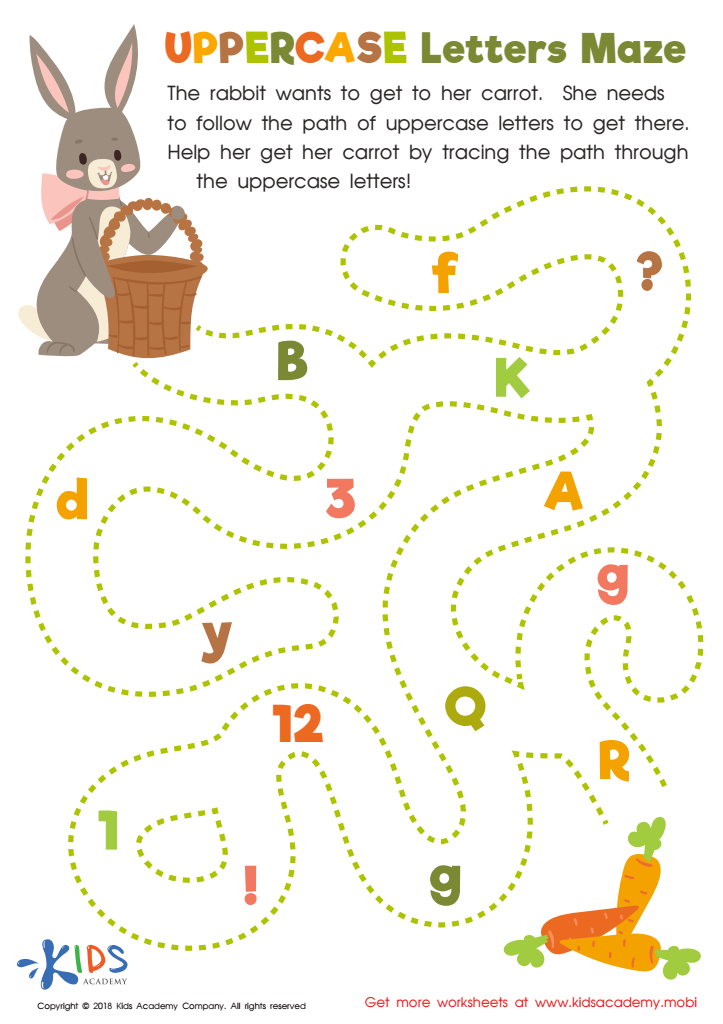

Uppercase Letters Maze Worksheet
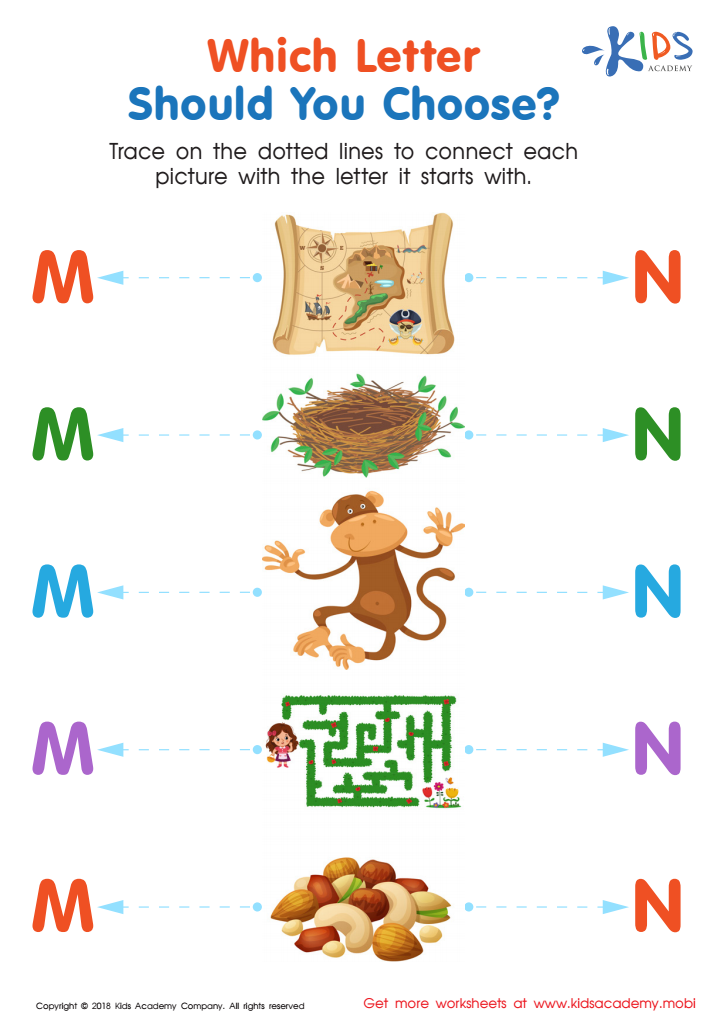

Which Letter Should you Choose? Worksheet


Long Vowel Maze /o/ and /i/ Worksheet
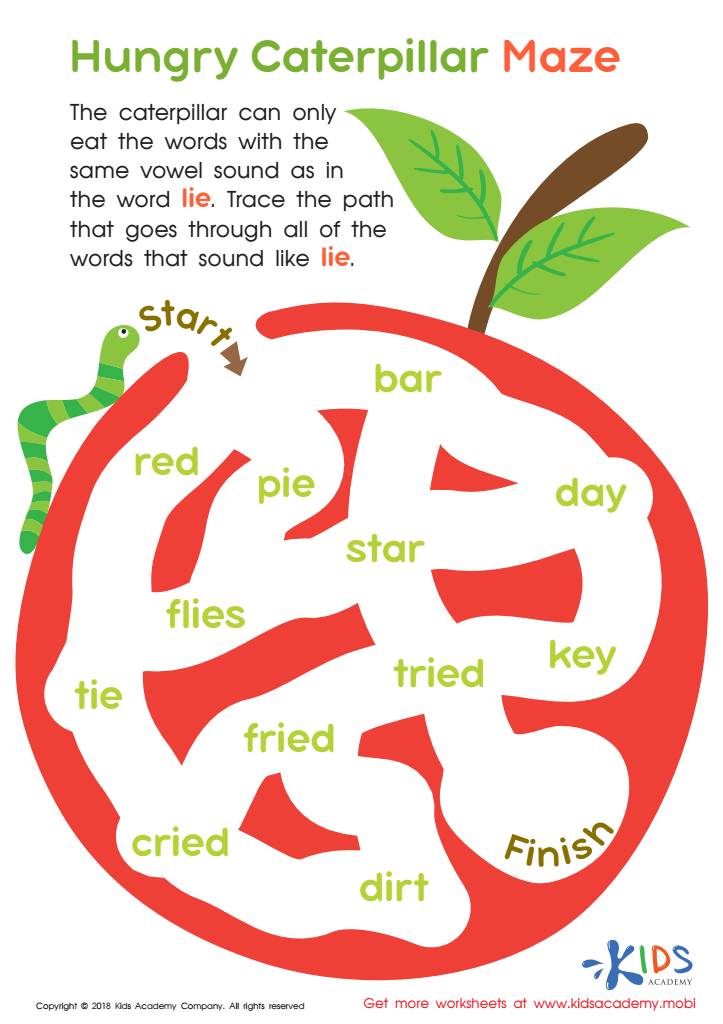

Hungry Caterpillar Maze Worksheet
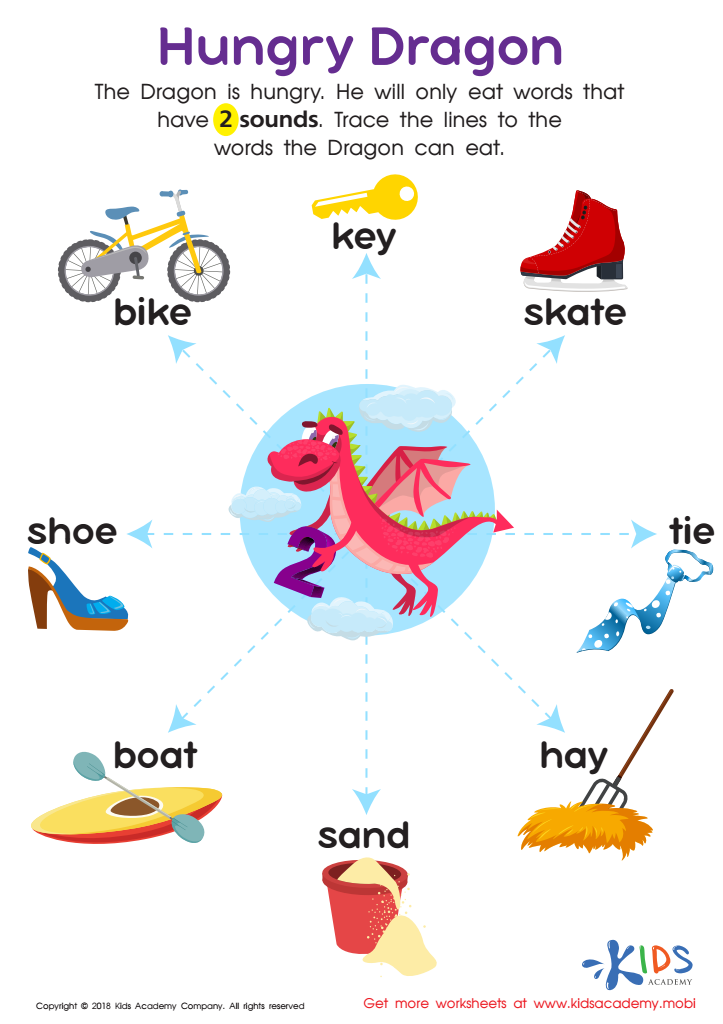

Hungry Dragon Worksheet
Problem-solving skills are vital for children ages 4-8 as they lay the foundation for critical thinking and future learning. During these formative years, children's brains are developing rapidly, making it the perfect time to nurture their ability to analyze situations, make decisions, and figure out solutions independently.
Parents and teachers play crucial roles in fostering these skills through engaging activities and discussions. By encouraging children to tackle challenges—whether it’s figuring out how to build a tower with blocks or resolving a conflict with a friend—they learn resilience and the value of persistence. These experiences help them understand that problems are part of life and can be approached with patience and creativity.
Moreover, strong problem-solving abilities enhance academic success. Children equipped with these skills are more likely to excel in mathematics, science, and reading comprehension, as they learn to approach tasks analytically. Additionally, good problem solvers often enjoy higher self-esteem and better social interactions, as they feel capable of handling life's challenges.
In short, investing in problem-solving skills at this age benefits not just the child’s academic journey, but also their emotional and social development, paving the way for lifelong learning and success.
 Assign to My Students
Assign to My Students












